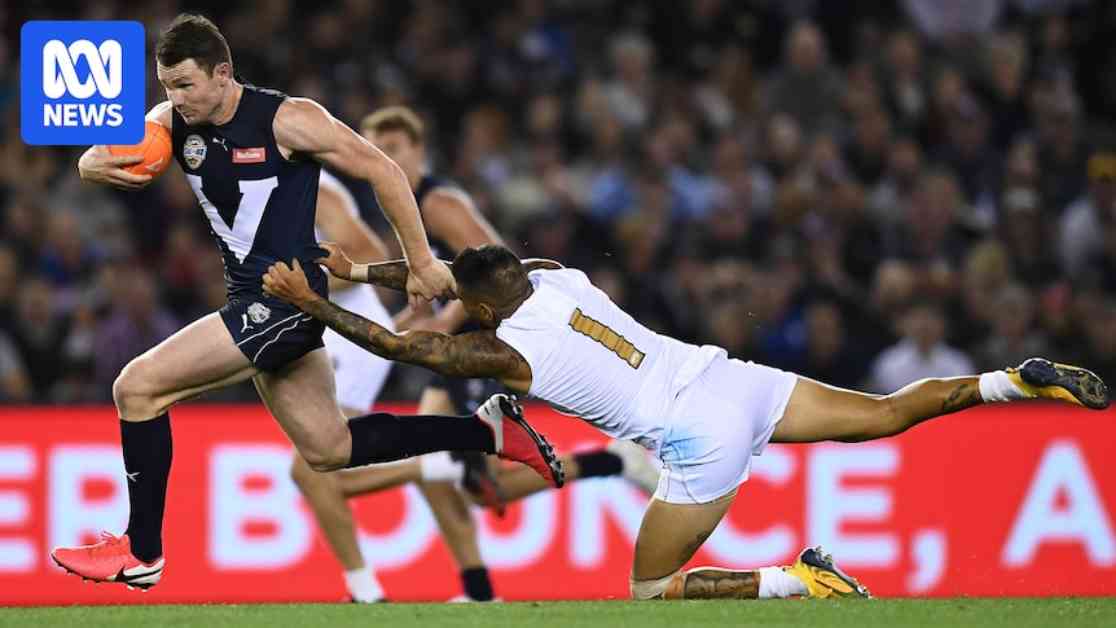AFL State of Origin: A Potential Resurgence in Representative Football
AFL enthusiasts were met with exciting news as AFL chief executive Andrew Dillon hinted at the possible resurgence of the state of origin matches during a recent interview. Amid a growing wave of support for the concept, Dillon expressed the league’s contemplation of incorporating representative fixtures as a regular feature on the AFL calendar in the coming years.
The Indigenous All Stars exhibition held last weekend served as a catalyst for this renewed interest in representative football. With nearly 38,000 passionate fans in attendance, the Indigenous All Stars delivered an impressive performance, triumphing over Fremantle by 43 points at Perth Stadium. The overwhelming success of the match underscored the potential for more representative fixtures in the future.
The Return of State of Origin: A Nostalgic Flashback
The prospect of reviving state of origin matches has sparked nostalgia among fans, as these iconic contests have only graced the AFL stage twice in the past two decades. The last true state of origin fixture dates back to 1999 when Victoria emerged victorious against South Australia. While Victoria also secured wins in the 2008 Hall of Fame tribute match and the 2020 bushfire relief match, the absence of regular state of origin clashes has left a void in the hearts of many AFL supporters.
Dillon’s openness to exploring the reintroduction of state of origin matches in the AFL calendar has reignited hope among fans longing to witness these intense battles once again. With discussions underway and a potential timeline for the return of these matches, the future of representative football seems promising.
The Road Ahead: Charting the Course for Representative Football
As the AFL navigates the path towards reinstating state of origin matches and other forms of representative football, key considerations such as player and club buy-in, scheduling, and overall fan engagement come to the forefront. The success of the Indigenous All Stars exhibition serves as a testament to the potential allure of representative fixtures, drawing in both viewers and participants with its unique blend of talent and tradition.
Dillon’s emphasis on finding the right balance in scheduling these matches, along with garnering support from players and clubs, highlights the intricate planning required to ensure the sustainability of representative football in the AFL landscape. With discussions ongoing and decisions expected to be made in the coming months, the future of state of origin matches and other representative fixtures hangs in the balance, awaiting further deliberation and input from all stakeholders.
In conclusion, the potential revival of state of origin matches in the AFL signals an exciting new chapter for representative football, rekindling the spirit of competition and camaraderie that has long defined these historic contests. As the league charts its course towards reintroducing these iconic clashes, fans can look forward to a reinvigorated era of representative football that pays homage to the rich heritage and tradition of the game.





